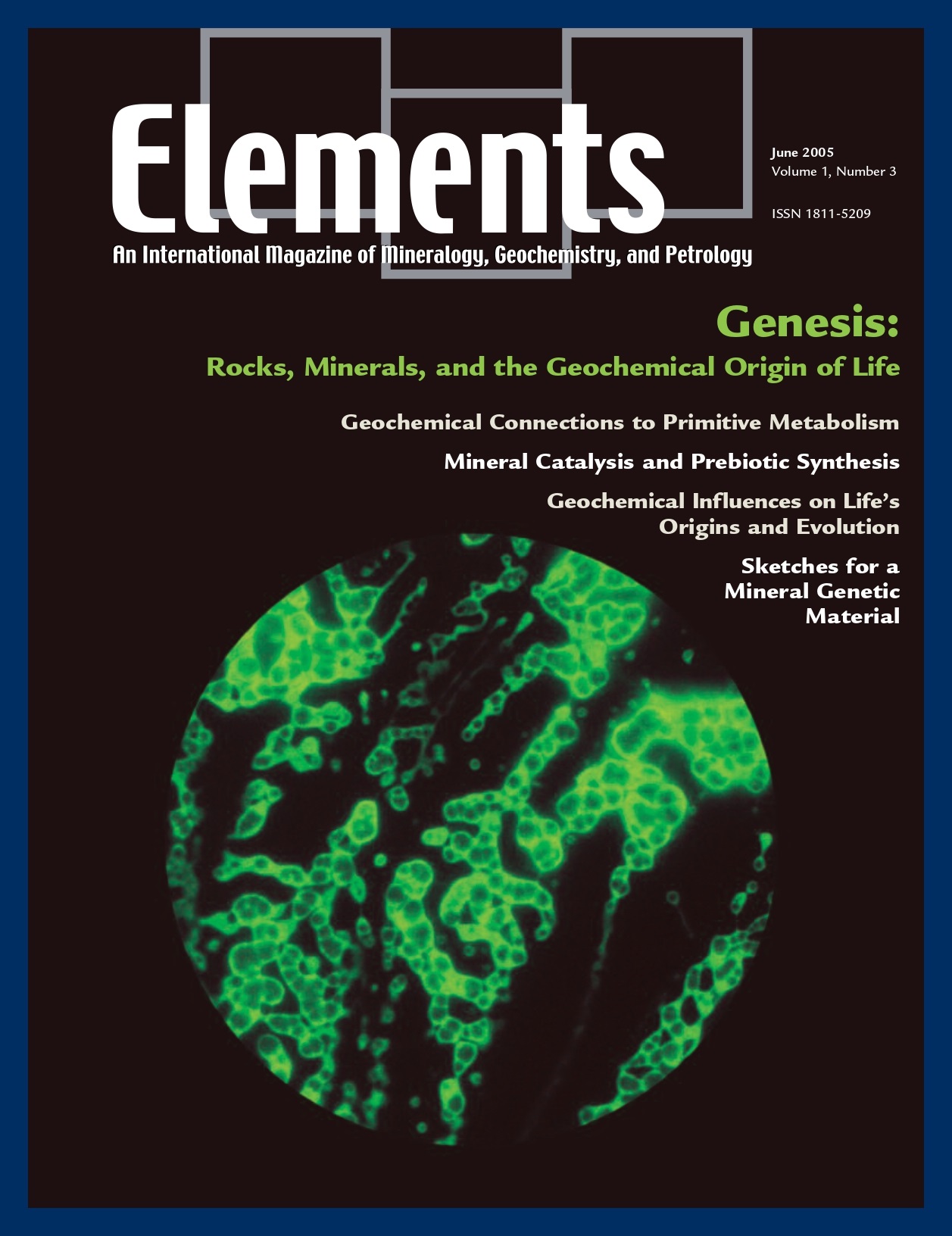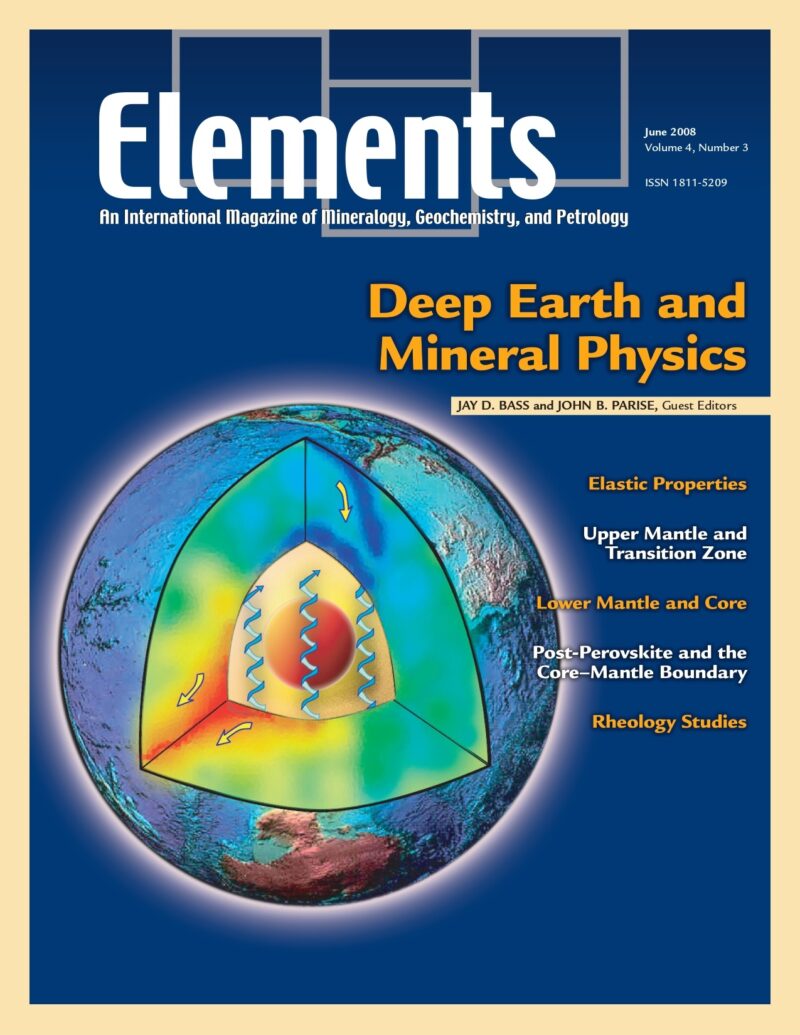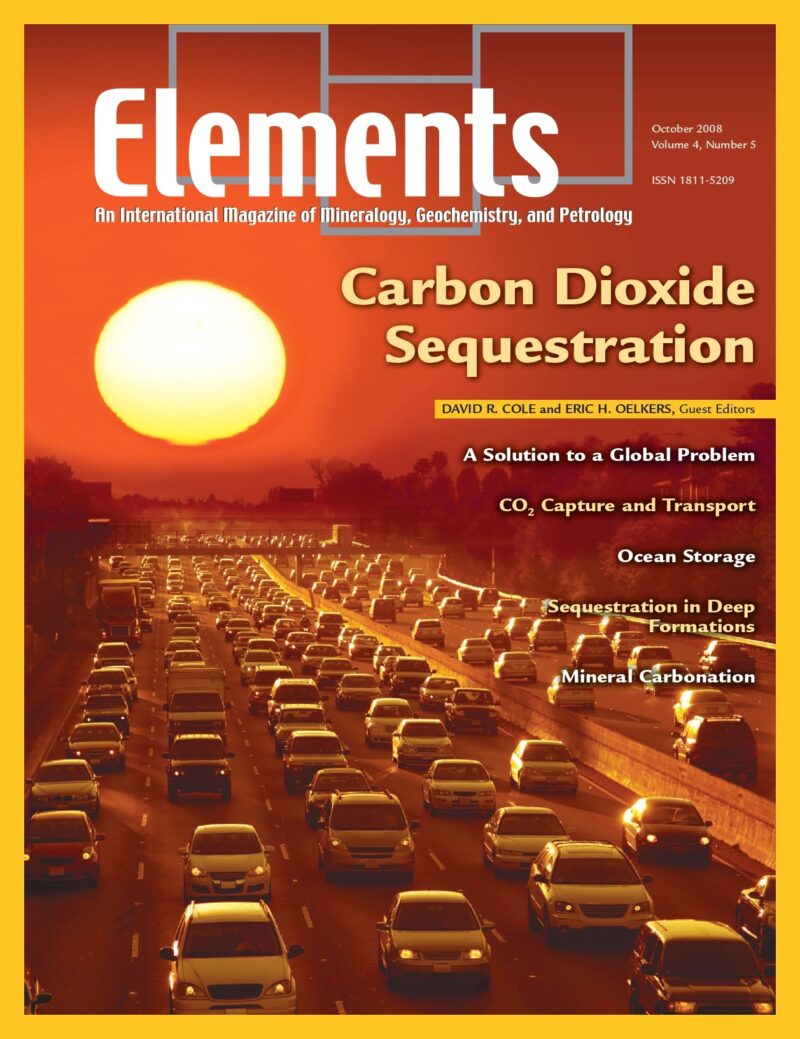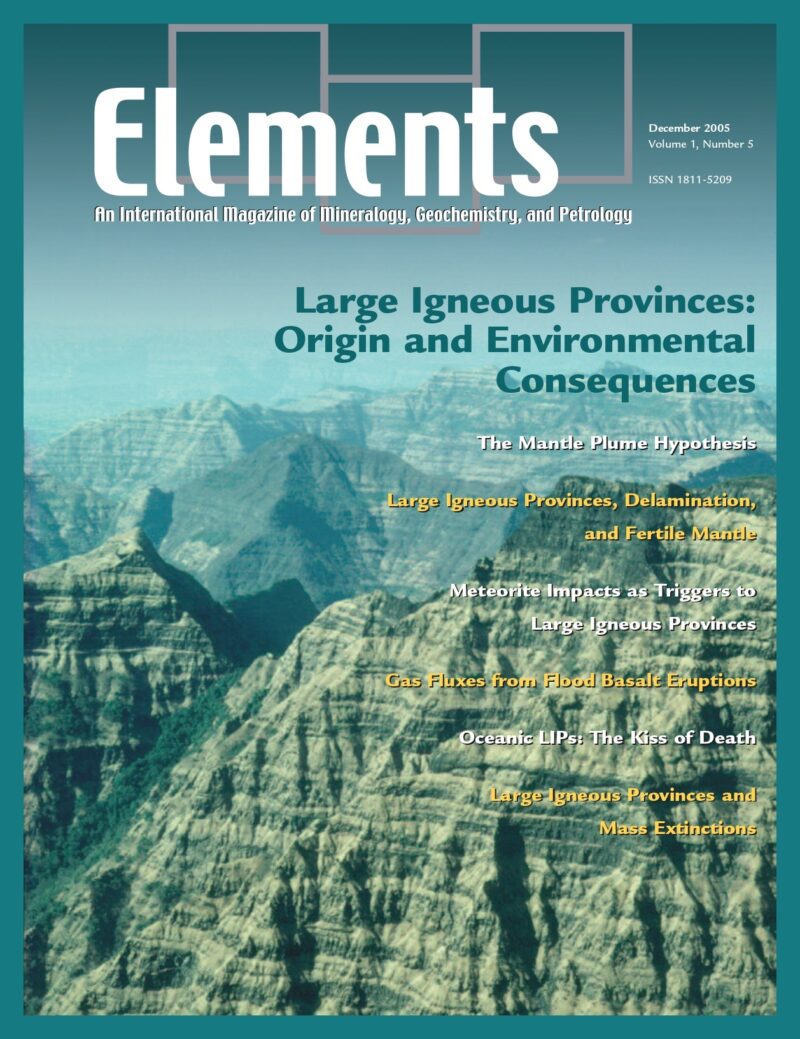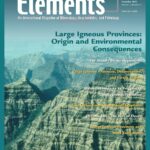
Large Igneous Provinces: Origin And Environmental Consequences, December 2005, Vol. 1, No. 5
June 28, 2024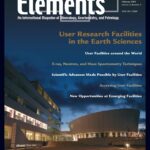
User Research Facilities In The Earth Sciences, February 2006, Vol. 2, No. 1
June 28, 2024Genesis: Rocks, Minerals, And The Geochemical Origin Of Life, June 2005, Vol. 1, No. 3
$20.00
Few scientific questions so capture the public imagination, or provoke such lively debate, as how life on Earth emerged. In this issue of Elements, four of the most creative minds in origins research present their original insights on the geochemical origins of life.
Genesis: Rocks, Minerals, And The Geochemical Origin Of Life
June 2005, Vol. 1, No. 3
Few scientific questions so capture the public imagination, or provoke such lively debate, as how life on Earth emerged. In this issue of Elements, four of the most creative minds in origins research present their original insights on the geochemical origins of life. Each author has studied the field in depth, and each has come to an inescapable conclusion: rocks and minerals must have played a pivotal role in the transition from the blasted, prebiotic Earth to the living world we now inhabit. Rocks and minerals catalyzed the synthesis of key biomolecules; they selected, protected and concentrated those molecules; they jump-started metabolism; and they may even have acted as life’s first genetic system.
Why You’ll Love Elements Magazine:
- Expert Contributors: Articles written by renowned researchers in the field of geoscience.
- Engaging Content: Join a community of readers who are passionate about Elements.
- Exceptional Quality: Each issue is printed on high-quality paper with stunning visuals and detailed illustrations that bring complex scientific concepts to life.
Order your copy of the June 2005 issue of Elements magazine today and delve into the genesis of rocks, minerals, and the geochemical origin of life.
Related products
-
Deep Earth And Mineral Physics, June 2008, Vol. 4, No. 3
$20.00The field of high-pressure mineral physics is central to our understanding of the Earth’s interior and its evolution. It is also a field that is rapidly advancing.
-
Carbon Dioxide Sequestration, October 2008, Vol. 4, No. 5
$20.00Storage of carbon in the subsurface involves introduction of supercritical CO2 into rock formations beneath the surface of the Earth, typically at depths of 1000 to 4000 meters. Although CO2 is a relatively benign substance, the volume being considered is large.
-
Large Igneous Provinces: Origin And Environmental Consequences, December 2005, Vol. 1, No. 5
$20.00Large igneous provinces record major outpourings of igneous rocks, both on the continents and in ocean basins. Their origin is still vigorously disputed, with models invoking mantle plumes, thermal effects of the lithosphere, and meteorite impacts.

